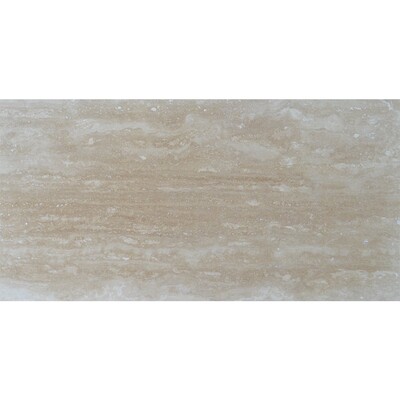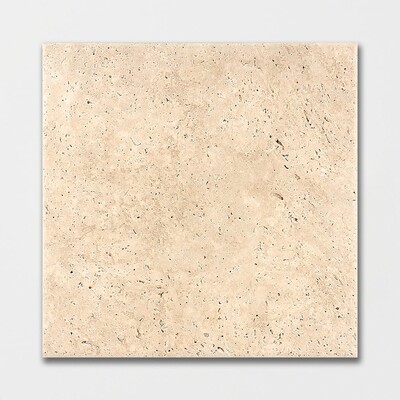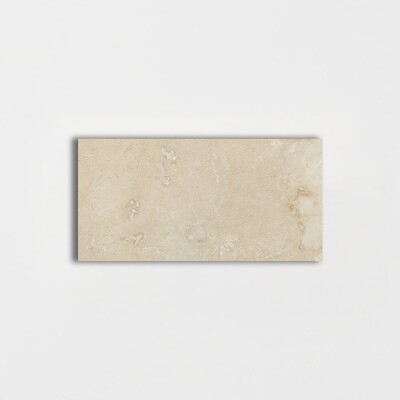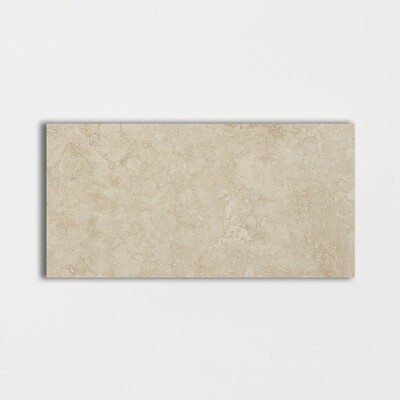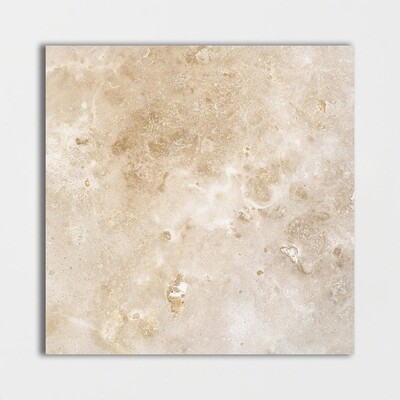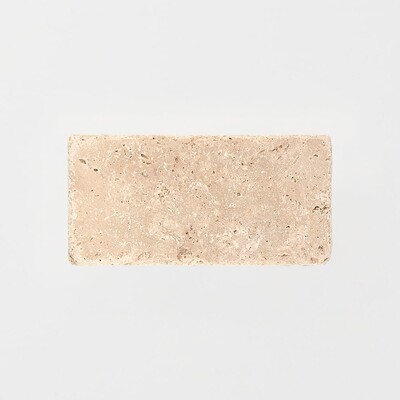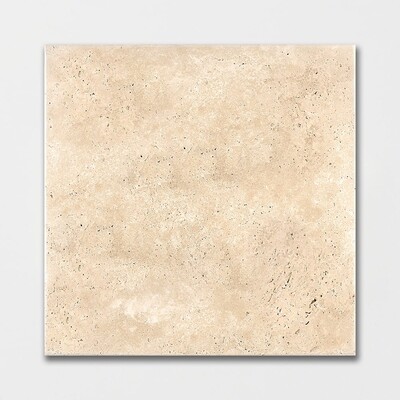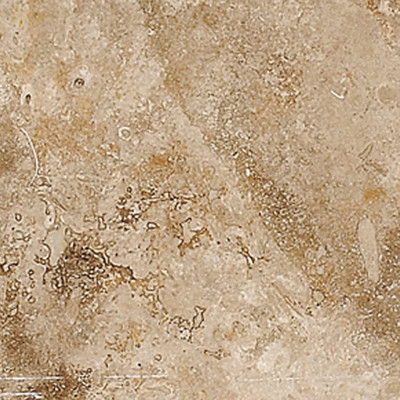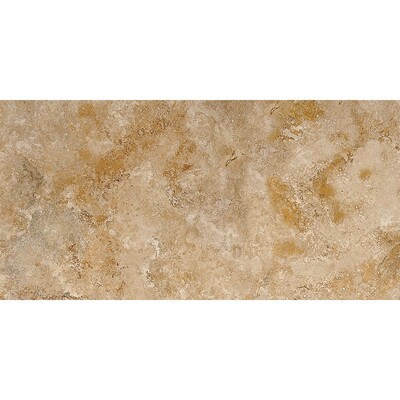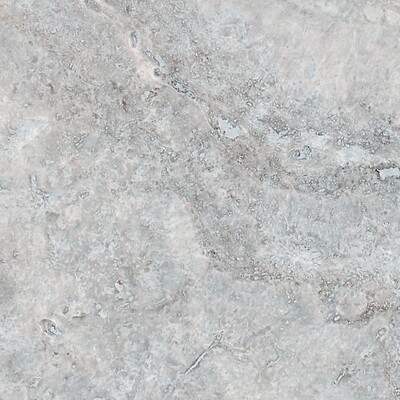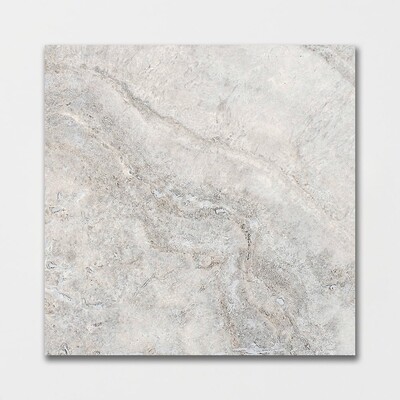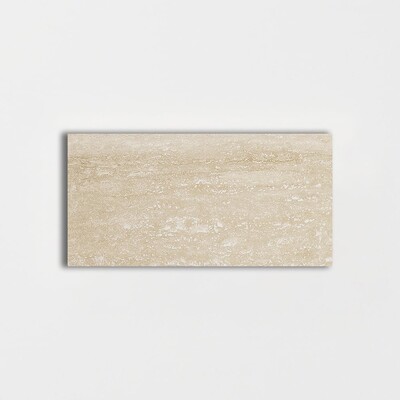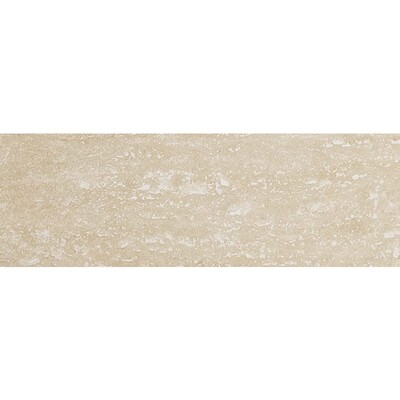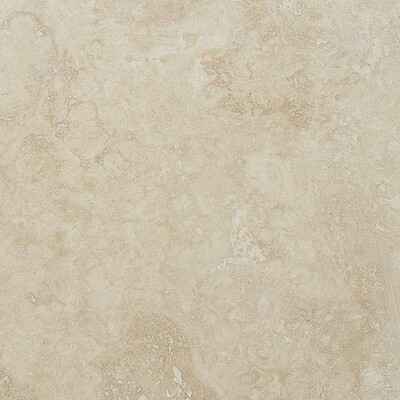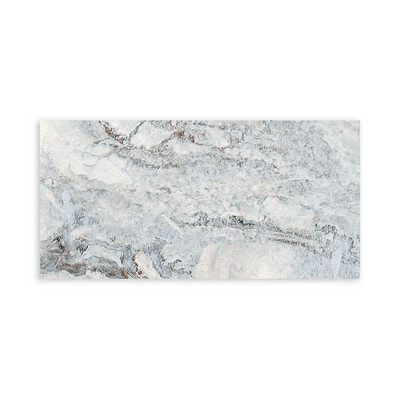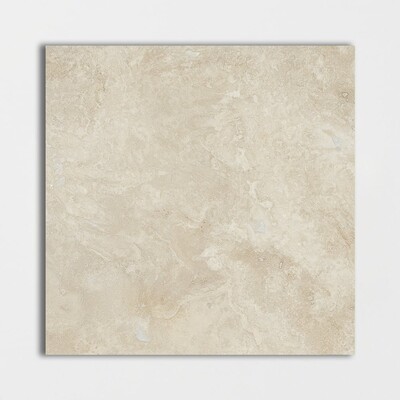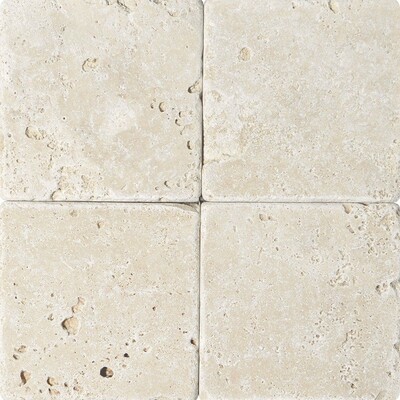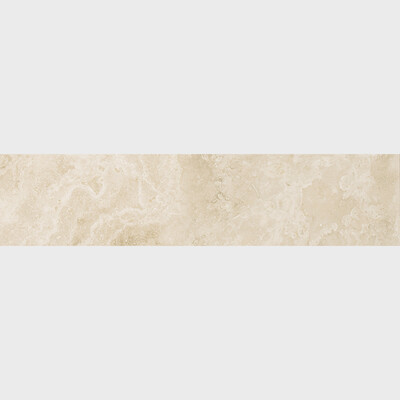19 Products Found.
Travertine tile is actually a type of limestone that develops in the high temperatures of hot water springs. Since these springs exist all around the world, travertine has no specific place of origin. Natural travertine tile can be found everywhere from Italy to Iran to Peru. The most notable place for the formation of travertine tile in Northern America is Yellowstone National Park.
Travertine tile is not ideal for shower installations. Travertine is a porous stone, which means it can break down over time from water exposure. While regular re-sealing can protect the surface of the stone, it will not fully prevent damage on either travertine shower wall or travertine shower floor installations. Additionally, honed travertine can be slippery when wet, so it's not typically recommended for shower floor installations.
Cleaning grout for travertine tile floors only requires the use of a mild and gentle cleaning solution and a soft gentle brush. Toothbrushes and nail brushes are ideal for cleaning grout along travertine floor tile as well as travertine tile backsplashes.
Yes. Travertine tiles do require sealing. Although travertine is known to be durable, it's not as strong as other types of stone, like granite. Travertine tile should be sealed with either an enhancing or natural sealer upon installation. A sealer should be applied about every three to five years afterwards to maintain quality and luster.
The resealing timeframe depends on whether your travertine tile is indoors or outdoors. Generally, we suggest resealing your travertine tile every three to five years after its initial installation. Areas that are either outdoors, have heavy foot traffic, or experience frequent moisture exposure should be resealed every three years.
Travertine can be installed in bathrooms. A tumbled travertine tile bathroom can work beautifully if the tile is properly applied and sealed. The rougher surface of a tumbled travertine bathroom floor is perfect for anyone seeking a non-slip bathroom floor.
However, because travertine tile is a porous stone, we do not recommend it for submerged areas like showers. Travertine tile is more porous than heartier stones. Therefore, constant exposure to water wears down the surface of travertine tile over time.
All shades of travertine can darken slightly over time. Particularly, white travertine tile has an increased tendency to darken over time when the iron compounds in the stone mix with oxygen. Dirt buildup and debris can also tint light-colored travertine tile over time.
Polished travertine and honed travertine can be very slippery when wet. Sandblasted travertine and antiqued travertine tile (also known as tumbled travertine), offer more grip but should still be used with caution – it's never a good idea to run on wet tile.
You can maintain travertine tile with a gentle cleanser, warm water, and a soft mop or microfiber cloth. If you have travertine kitchen floors, travertine bathroom floors, or a travertine backsplash, these materials can keep your tile looking its best. Spills and splashes should be cleaned immediately. Additionally, aim to do a weekly mopping with a soft cloth and gentle cleanser.
No. Travertine tile is not hard to keep clean. If you immediately clean up spills and maintain a consistent mopping schedule, your travertine tile can look like new for years.
Travertine is not as hard a material as granite or marble tile, but it is an exceptionally durable stone. Travertine tile holds up well to high temperatures and heavy foot traffic. However, travertine tile can break or chip if it is struck by a heavy object.
Yes, travertine tile is suitable for outdoor use and exterior installations. It holds up well against the natural elements and lasts in high temperatures. It's also incredibly durable. Additionally, travertine tile patios or travertine tile poolsides have an organic, rugged feel that's perfect for the outdoors.
Most outdoor travertine tile can be cleaned only using water. For light travertine tile, or infrequently cleaned travertine tile, we suggest using a pressurized water hose to effectively remove debris. Outdoor spaces should be cleaned frequently if used often and at least seasonally if not.
Travertine tiles fall mid-range in terms of material and labor expenses. On average, travertine tile costs about $15 per square foot for materials (plus labor costs). In comparison, granite costs an average of $12 per square foot, and marble falls around $20 per square foot.
Travertine tiles or travertine is one of the oldest building materials available to install in your home. It is a durable stone tile that can introduce lots of natural beauty to your decor. Its visibly porous, pocked surface gives it a truly distinctive texture.
Available in a multitude of colors, travertine tile can be finished, so it appears polished, honed, brushed, or tumbled. The wide variety of travertine looks available means that there's a tile that can create the right vibe in any room you have in mind, from bathrooms to kitchens. They aren't expensive in Stone Tile Depot as we bring natural stone tiles directly from the factory. Still, if you are looking for clearance tiles we have this covered for you too.
Where does travertine come from?
Travertine quarries are located in Turkey and Italy. Roman travertine has been used for centuries all over the World. The best-known variety is Roman travertine or Silver Travertine from Italy and Osso travertine or Alabastrino Travertine. In fact most of Rome is built with travertine blocks from nearby quarries.
Tuscan travertine is another type of popular material. Tuscan travertine is not very directional ( meaning veins are not linear ); therefore, it is best if it is crosscut. Crosscut travertine also shows fewer holes and it is easier to fill.
Crosscut travertine means it is against the river bed, and it will look like big waves or circles. Turkish travertine is quarried all over Turkey. The most prominent area is the Denizli quarries. Denizli quarries produce Ivory travertine, Walnut travertine, and yellow or Golden Sienna travertine. All these are natural stone travertine tiles.
American travertine quarries in New Mexico and Colorado produce some beautiful colors, but they are not widely commercialized. Domestic installations like government buildings install travertine to comply with local rules.
What are the travertine finishes?
Most typical travertine tiles come in filled and polished. Subtle move towards honed finish or mat finish made honed and filled travertine very popular. Honed unfilled can be used in exterior vertical applications like wall tiles or rustic travertine walls. We don't recommend unfilled finish in interior floor applications because holes will get dirty. Finally, the tumbled finish is trendy in pool decks and exterior floor applications like walkways, swimming pool decks, and spa areas. A tumbled finish creates a less slippery surface for wet areas. Tumbled travertine is perfect for all wet areas in resorts and luxury hospitality applications that require stone tile.
Where can you use travertine tiles?
Residential floors, residential walls, shower floors, shower walls, backsplashes, and all kinds of floor areas are recommended for commercial applications bathroom floors and walls as well as all lobby wall cladding. Travertine is the most functional stone flooring material. It is durable and easy to maintain. Travertine tile is a natural floor covering material for warm climates and resorts. Travertine slabs can be beautiful in book-match slab cladding.
What to look for in travertine?
Travertine should be uniform in color distribution and even in veining. The amount of holes also determines the quality. Usually, more holes mean more commercial grade. The fill color should be reasonably close to the background color.
How to maintain travertine tiles?
You should use regular clean water to mop and clean. We recommend sealing all travertine tiles with a good sealer like Ardex.
